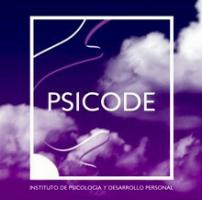How the pandemic has influenced the development of hypochondria and OCD
Although the term "mental illness" can lead to misunderstandings, the truth is that psychological disorders do not arise in isolation within the brain; They do not appear simply from a mismatch of hormones, neurons or metabolic processes in the human body, but have both biological, behavioral and social causes. Our environment and the way we interact with it influence people's mental health, and much more than it seems.
That is why psychotherapy professionals have not been surprised to see to what extent the coronavirus pandemic has had an impact on the appearance of psychopathologies; In times of crisis it is normal for this to happen, and in the case of these months marked by COVID-19, there have been several at the same time: a health crisis, a social and political crisis, and an economic crisis.
Therefore, in this article we will focus on analyzing How the pandemic has exposed us more to two specific disorders: hypochondria and OCD. Let's start by seeing what its characteristics are separately.
- Related article: "5 Signs of Poor Mental Health You Shouldn't Ignore"
What are OCD and hypochondria?
The TOC, acronym for "Obsessive-Compulsive Disorder"is a psychopathology characterized by two main elements and which are reflected in its name: obsessions, which are mental images or intrusive thoughts that appear over and over again generating a high level of discomfort in the person; and compulsions, which are very specific sequences of actions that the person needs to perform each time to try to mitigate (in the short term) the damaging influence of obsessions and allow your attention to shift to another thing.
That is while the first element generates an instantaneous discomfort and that "invades" the consciousness of the person, preventing him from thinking about anything else, the second provides a momentary remedy, although in the long run it only aggravates the problem by making it even more important to obsessions and that the person does not feel protected until he does not carry out the compulsion each time.
For its part, hypochondria (sometimes called more officially "somatic symptom disorder", although the latter term is broader and also addresses other similar alterations) is a psychopathological disorder in which the person develops strong anxiety in the face of the unfounded belief that he suffers at least one illness.
In cases like this, the degree of discomfort is so strong that not even a visit to the doctor in which a check-up is done and is assured that everything is well serves to reassure the person in the medium and long term, since he quickly reinterprets certain experiences as a sign that he has developed a pathology, usually severe. A) Yes, hypochondria makes the person very prone to self-diagnosis again and again, interpreting in the most pessimistic way possible all kinds of sensations or changes in the body whose causes he does not know well, and that does not really have to indicate that he suffers from a disease.
- You may be interested in: "Hypochondria: causes, symptoms and possible treatments"
What do these two psychological disorders have in common?
From what we have seen so far, OCD and hypochondria appear to be two clearly distinguishable disorders; and to a large extent they are. However, as is often the case with mental disorders, several of their characteristics overlap, and the main one is the ease with which they lead the sufferer to experience thoughts of the type obsessive
That is, both in hypochondria and in Obsessive-Compulsive Disorder, we are more vulnerable to developing a vicious cycle of anxiety and intrusive thoughts that overwhelm us emotionally. In the case of OCD, these can consist of all kinds of disturbing memories or imaginary situations that we assume as predictions of what could happen, and in many cases memory and imagination mix, leading us to exaggerate events that actually happened. In the case of hypochondria, intrusive thoughts tend to have more to do with the earthly world of sensations, changes in skin color, joint discomfort ...
In any case, in these two psychological disorders the person "learns", without realizing it, to attract to his consciousness a series of mental contents that make him feel very bad, and it is customary to resort to a very specific type of momentary relief: in OCD, compulsions that must be repeated systematically without departing from the guidelines set by the occasions previous (for example, scratching the right ear four times and the nose ten times, in this order), and in hypochondria, self-check behaviors and searches on the Internet or in books medicine to try to self-diagnose and better understand the alleged disease suffered, as well as the adoption of all kinds of extreme precautions to prevent the problem from agrave.
- Related article: "Anxiety and coronavirus: 5 basic tips to feel better"
How has the pandemic influenced the appearance of these psychological disorders?
The coronavirus pandemic has given rise to a context that is the ideal breeding ground for psychopathologies such as OCD and hypochondria.
On the one hand, a media blitz of sensational or biased news that has focused on the most tragic aspects or worrying about the COVID-19 crisis to grab the attention of viewers; on the other hand, periods of confinement that have left people vulnerable to emotional disturbances with less social support resources to face this very complicated situation, having to remain in relative isolation Social; In addition, the fear of contagion and being infected, based on a source of microscopic danger that, when being invisible to the eye, leaves a lot of room for ambiguity and anxiety anticipatory; and finally, an economic crisis that has pushed many families to the limit, causing many citizens in a precarious situation to have had to stay in "State of alert" and trying to perform to the maximum without interruptions, to minimize the risk of possible complications due to dismissal, due to bankruptcy of the family business, etc.
And to all this we would have to add the bewilderment that has reigned for months, since successive versions of the coronavirus are new pathogens of which little was known, contradictions have been frequent in health measures, in the statements of politicians, etc. This feeling that no one is clear on how to be safe from COVID-19 has displaced the full responsibility to protect themselves and their families, which has put a lot of pressure on broad sectors of the community. population.

Thus, people may develop hypochondria as a response to the need to be alert to the first symptoms of the disease, and others may develop OCD for avoid the risk of contagion as much as possible and even to purge the feeling of guilt for, perhaps, having infected other people in the past.
All these experiences are linked to the fear of contracting COVID-19 and / or infecting loved ones, and at the same time, predispose to people desperately looking for expectations and certainties about how the virus works and the emotional imbalances of fear of pandemic. And sadly, disorders like hypochondria and OCD, Although generating great discomfort, they provide a series of references to "locate" in the face of the COVID-19 crisis and its consequences: knowing approximately what the risk of suffering a tragedy is if something is not done to avoid it (very high), generate guidelines to regulate immediate discomfort, feeling of being relatively "prepared", etc.
- You may be interested in: "Rumination: the annoying vicious circle of thought"
Do you want to go to psychotherapy?
If you are looking for professional psychological care services, please contact me.
I am a General Health Psychologist and in my practice we attend to people of all ages with problems such as generalized anxiety, OCD, low self-esteem, depression, hypochondria or grief over loss of beings dear. The sessions can be done both in person and through the online therapy modality.

